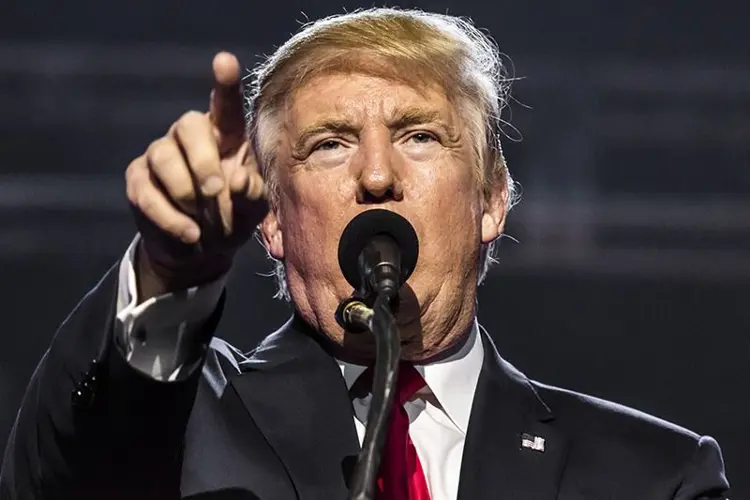Juul Labs has filed its long-awaited PMTA, which includes no flavored products aside from tobacco and menthol pods. Juul filed six weeks before the Sept. 9 Premarket Tobacco Application deadline for all vaping products.
Assuming the company’s application is accepted for substantive review, Juul will be able to leave its current products on the market for a year, or until the FDA makes a final decision. The only low-risk tobacco products to receive PMTA approval so far have been snus from Swedish Match, and Philip Morris International’s heated tobacco product IQOS. FDA review of those products took more than two years.
Juul Labs (note the new capitalization convention: the company is Juul Labs, the product is still JUUL) announced the filing yesterday, referring to the products submitted as the “JUUL System.” Juul noted that only Virginia Tobacco and Menthol flavored pods (in both 5 and 3 percent nicotine strengths) were part of the application, but didn’t describe which devices made up the “system.” It is widely known that the company has new versions of its well-known pod vape with features that aren’t part of the currently sold device, including an age verification system for users.
In January, HHS Secretary Alex Azar promised a “streamlined” PMTA process, but no changes to the onerous, expensive system have been made.
To leave the original product on the market while the application is considered by the FDA, the JUUL PMTA must include both the current device and any advanced products. That means doing duplicate testing and research for each device submitted—something only a wealthy vape company like Juul Labs could afford.
Few if any small, independent vaping businesses have the financial resources to submit an effective PMTA. Industry advocates are pressing the FDA and its parent agency the Department of Health and Human Services (HHS) to adopt a simplified version of the approval pathway for small manufacturers. And while hundreds of small companies are proceeding with plans to submit PMTAs based on a model version of the simplified process, the federal agencies have offered no sign that the small companies' applications will be accepted for review. In January, HHS Secretary Alex Azar promised a “streamlined” PMTA process, but no changes to the onerous, expensive system have been made.
Approval of a PMTA requires a manufacturer to prove to the FDA that its product is “appropriate for the protection of public health”—a requirement defined in the 2009 Tobacco Control Act. That definition means that the product must benefit the health of the population as a whole, including not just the smokers likely to reduce their health risks by switching, but also non-smokers and kids who may desire to experiment with “tobacco products.”
The process was deliberately created to get rid of thousands of small vape manufacturers, which are seen by the FDA as an unregulatable “wild west.”
The JUUL application, for example, contains “detailed scientific data from over 110 studies totaling over 125,000 pages evaluating the product’s impact on both current users of tobacco products and nonusers, including those who are underage.” According to the company, its PMTA includes research showing:
- “The harm reduction potential of the product”
- “The controlled design and repeatable manufacturing processes associated with the JUUL System”
- “Data-driven measures to limit unintended consequences to the overall population, including initiation among nonusers”
Proving its product won’t attract additional youth vapers is a high bar for Juul to reach, and producing such evidence cost Juul Labs millions of dollars, and required a team of scientists working full time on nothing but the JUUL PMTA. Even with its history of antagonizing the FDA (just last week a story claimed that Juul secretly changed its product after the Aug. 8, 2016 cutoff date that froze products in place), and its position as the favorite whipping boy of anti-vaping tobacco control groups, Juul will face fewer PMTA hurdles than small vape companies.
“Preparing and satisfying a PMTA is no easy task, with applications that are millions of pages long, costing millions in resources, and requiring significant scientific support,” financial analyst Ryan Tompkins told Convenience Store News. Most of the companies submitting PMTAs are paying for their applications with money made by selling cigarettes.
For the FDA, dealing with a handful of huge companies that already know how to play the compliance game was always the goal.
The FDA PMTA guidance for manufacturers is intentionally vague and loosely defined. Everything is left up to the manufacturer—and without a staff of experienced regulatory compliance experts, it is impossible to even make an educated guess about what will or won’t be needed to satisfy the agency. The only PMTA approval history they have to base their guesses on comes from products very different from vapes.
A company like E-Alternative Solutions, for example—which just submitted its own PMTA—probably had to rely on freelance compliance consultants to do its testing and analysis. And EAS likely depended on the Chinese manufacturing facilities it contracts with to provide details about components and manufacturing processes.
Juul, on the other hand, controls its own production from raw materials to packaging, which makes study and explanation of manufacturing processes simpler and more accurate than would be possible for companies that depend on a variety of suppliers and sub-manufacturers. That is also true of the products that have already received PMTA approval.
The vaping industry’s rapid consumer-driven, bottom-up innovation is incompatible with the Tobacco Control Act, and the FDA’s Deeming Rule was designed to drive that point home. The process was deliberately created to get rid of thousands of small vape manufacturers, which are seen by the FDA as an unregulatable “wild west.”
Even if the PMTA deadline gets pushed back till next year, the FDA can smell blood now.
The agency never intended to create a process that would allow small businesses to thrive and help customers migrate away from cigarettes. For the FDA, dealing with a handful of huge companies that already know how to play the compliance game was always the goal.
There may yet be additional delays of the deadline because of challenges created by the coronavirus pandemic. Even if the PMTA deadline gets pushed back till next year, the FDA can smell blood now. The agency is on the brink of getting what it has wanted since March 2009, when it seized e-cigarettes coming from China and tried to ban them as illegal drug devices.
Meanwhile, all of the tobacco companies that make vaping products—BAT/Reynolds (Vuse), Japan Tobacco (Logic), and Fontem/Imperial (blu)—have submitted their own applications, and probably have a good chance of approval. And if their PMTAs are rejected, they have the perfect backup plan: selling cigarettes.
The Freemax REXA PRO and REXA SMART are highly advanced pod vapes, offering seemingly endless features, beautiful touchscreens, and new DUOMAX pods.
The OXVA XLIM Pro 2 DNA is powered by a custom-made Evolv DNA chipset, offering a Replay function and dry hit protection. Read our review to find out more.
The SKE Bar is a 2 mL replaceable pod vape with a 500 mAh battery, a 1.2-ohm mesh coil, and 35 flavors to choose from in 2% nicotine.
Because of declining cigarette sales, state governments in the U.S. and countries around the world are looking to vapor products as a new source of tax revenue.
The legal age to buy e-cigarettes and other vaping products varies around the world. The United States recently changed the legal minimum sales age to 21.
A list of vaping product flavor bans and online sales bans in the United States, and sales and possession bans in other countries.



















